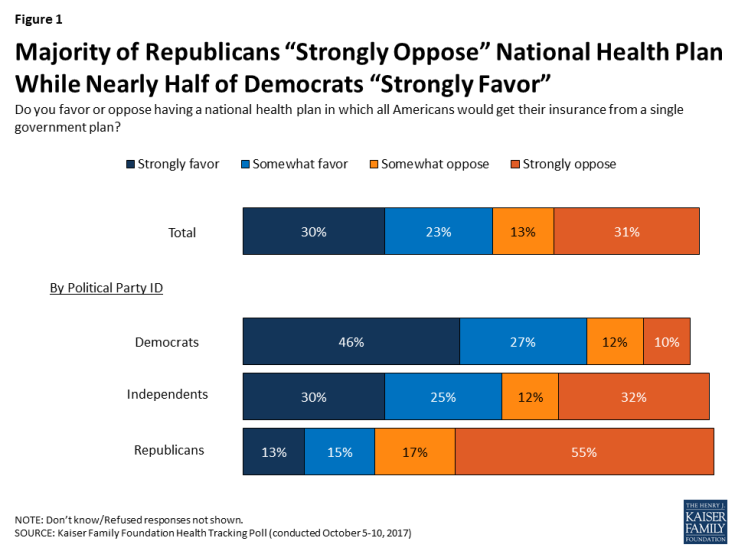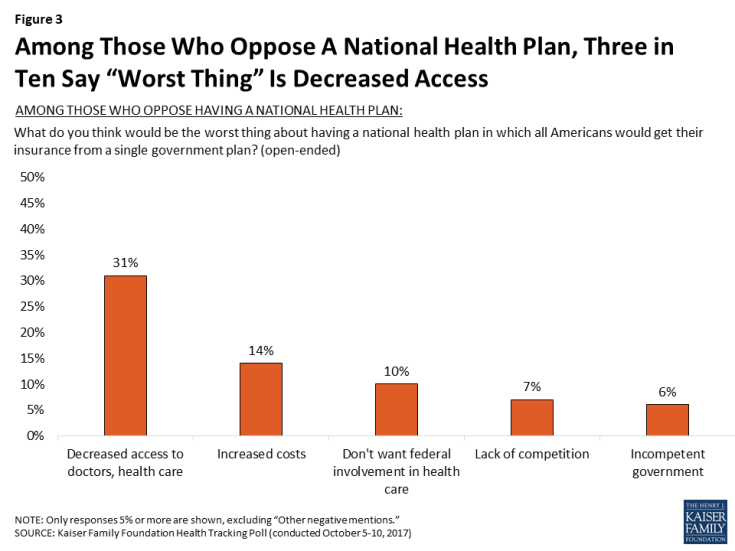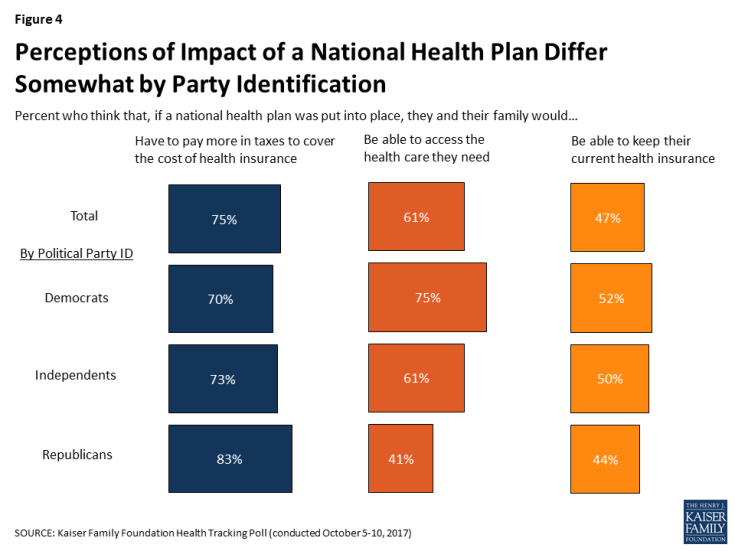Data Note: Public’s Views of a National Health Plan
The October Kaiser Health Tracking Survey continues our efforts to track attitudes towards a national health plan, sometimes referred to as a “single-payer plan” or “Medicare-for-all,” in which all Americans would get health insurance from a single government plan. About half of the public (53 percent) favor having a national health plan, while 44 percent oppose such a plan. Support for such a proposal is largely driven by Democrats with three-fourths (73 percent) favoring such a plan, of which nearly half (46 percent) say they “strongly favor” it. On the other hand, seven in ten (71 percent) Republicans oppose such a plan, including more than half (55 percent) of Republicans who say they “strongly oppose” it. Independents are more divided with a slightly larger share favoring a national health plan than opposing it (55 percent vs. 43 percent).

Figure 1: Majority of Republicans “Strongly Oppose” National Health Plan While Nearly Half of Democrats “Strongly Favor”
When asked to say in their own words the “best” or “worst” thing about having a national health plan, three in ten of those who favor such a plan offer the “best thing” is that it would provide access to health care for everyone. This is followed by one-fifth who offer it would finance health care more fairly, six percent who say it would make health care more affordable and five percent who say it would get rid of out-of-pocket costs.

Figure 2: Universal Coverage and Financing Health Care More Fairly Seen As “Best Things” About National Health Plan
On the other side of the argument, three in ten (31 percent) of those who oppose a national health plan offer the “worst thing” about such a plan is that it would decrease access to doctors or health care fourteen percent say it would increase costs, and one in ten offer the “worst thing” about a national health plan is that they don’t want federal involvement in health care. Slightly less than ten percent offer the “worst thing” is that it would result in a lack of competition (7 percent) or say the government is incompetent (6 percent).

Figure 3: Among Those Who Oppose A National Health Plan, Three in Ten Say “Worst Thing” Is Decreased Access
The Perceived Impact of Implementing a National Health Plan
This month’s survey also assessed how the public thinks implementing a national health plan would affect their current health insurance plans, access to care, and whether they will have to pay more in taxes to cover the cost of their health insurance. The majority of the public (75 percent) – including the majority of Republicans, independents, and Democrats – think that if a national health was put into place, they will have to pay more in taxes to cover the cost of health insurance. Fewer, but still a majority (61 percent) believe they would be able to access the health care they need, including a majority of Democrats (75 percent) and independents (61 percent), compared to about four in ten Republicans (41 percent). In addition, about half of Democrats (52 percent), independents (50 percent), and more than four in ten Republicans (44 percent) think they would be able to keep their current health insurance under a national health plan. Among individuals who currently get their health insurance through an employer, a group that would likely not be able to keep their current health insurance if a national health plan was implemented, nearly half (44 percent) incorrectly believe they would be able to keep their current health insurance.

